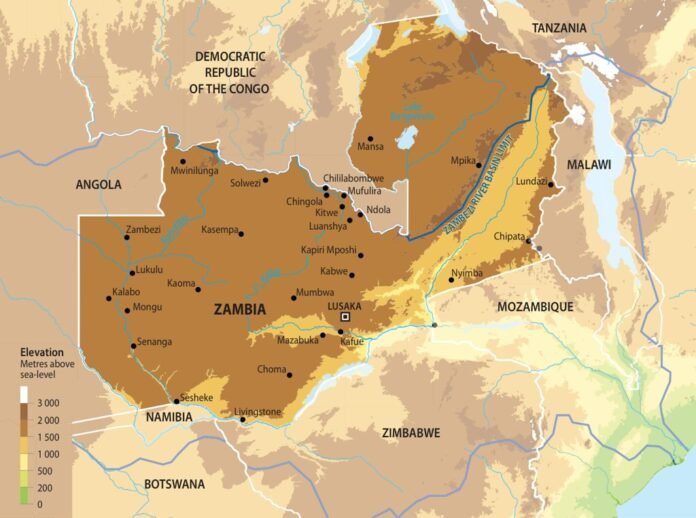Cancer is a growing health concern in Zimbabwe. Like many countries in sub-Saharan Africa, Zimbabwe faces significant challenges in cancer care, from late-stage diagnoses to limited treatment facilities. However, progress is being made. Several hospitals and cancer centers are working tirelessly to provide essential services and improve patient outcomes.
This article explores some of the key cancer treatment facilities in Zimbabwe, their specialties, and the broader efforts to enhance cancer care in the country.
Key Cancer Treatment Centers in Zimbabwe
1.Parirenyatwa Hospital
- Location: Harare
- Specialty: Comprehensive cancer treatment, including radiotherapy and chemotherapy
View this post on Instagram
Parirenyatwa Hospital is one of Zimbabwe’s leading healthcare institutions. Located in the capital city, Harare, it is home to the country’s main radiotherapy center. Patients from across the country seek treatment here, as it offers a range of oncology services, including chemotherapy, surgery, and palliative care. Despite being a major facility, it faces challenges such as outdated equipment, long waiting lists, and a shortage of specialized medical personnel.
2.Mpilo Central Hospital
- Location: Bulawayo
- Specialty: Cancer treatment, radiotherapy, research, and education
View this post on Instagram
Mpilo Central Hospital is the primary referral center for the southern region of Zimbabwe. It offers radiotherapy services and has been actively involved in cancer research and education. This hospital plays a crucial role in decentralizing cancer care, reducing the burden on facilities in Harare. However, like many public hospitals, it struggles with funding constraints, leading to inconsistent service delivery and occasional equipment breakdowns.
3.Oncocare Cancer Treatment Center
- Location: Harare
- Specialty: Modern oncology treatments, including chemotherapy and radiotherapy
View this post on Instagram
Oncocare is a private cancer treatment center providing high-quality oncology services. With state-of-the-art equipment and a team of experienced oncologists, Oncocare offers comprehensive cancer care, including chemotherapy, radiotherapy, and palliative treatment. While private healthcare facilities like Oncocare provide excellent care, they are often unaffordable for many Zimbabweans, making access to quality treatment a significant issue.
Challenges in Cancer Care in Zimbabwe
1. Late-Stage Diagnoses
One of the biggest challenges in cancer treatment in Zimbabwe is late detection. Many patients seek medical attention only when symptoms become severe, which significantly reduces the chances of successful treatment. Limited access to screening programs and a lack of awareness about early detection contribute to this problem.
2. Limited Treatment Facilities
Zimbabwe has only a handful of hospitals offering specialized cancer treatment. The existing facilities are often overburdened, leading to long waiting times for radiotherapy and other essential treatments. This shortage forces some patients to seek treatment abroad, which is costly and inaccessible to most.
3. Shortage of Oncologists and Medical Staff
The country has very few oncologists and specialized medical staff. Many healthcare professionals leave Zimbabwe for better opportunities elsewhere, leading to a brain drain in the medical field. This shortage makes it difficult for hospitals to provide timely and effective cancer care.
4. High Treatment Costs
Cancer treatment is expensive. While public hospitals offer subsidized care, they often lack resources, forcing patients to turn to private centers, where costs can be prohibitive. Chemotherapy, radiotherapy, and surgery are costly, and many families struggle to afford these treatments.
Efforts to Improve Cancer Care
Despite these challenges, efforts are being made to improve cancer care in Zimbabwe. Several initiatives and partnerships are helping to enhance treatment options and raise awareness about early detection.
1. Expansion of Cancer Screening Programs
Organizations and government agencies are working to increase cancer screening programs, especially for cervical and breast cancer. These efforts aim to catch cancer early, improving treatment outcomes. Mobile screening units have been introduced in some areas, making it easier for people in remote locations to access early detection services.
2. Upgrading Medical Equipment
Hospitals like Parirenyatwa and Mpilo have received donations and funding to upgrade their radiotherapy machines and other medical equipment. While progress is slow, these upgrades are crucial for improving treatment quality.
3. Training More Oncologists
There is a growing emphasis on training local oncologists and medical professionals. Partnerships with international institutions are providing training opportunities for Zimbabwean doctors, equipping them with the skills needed to handle complex cancer cases.
4. Increasing Awareness and Advocacy
Cancer awareness campaigns are being launched to educate the public about the importance of early detection. Non-governmental organizations (NGOs) and advocacy groups are working to dispel myths about cancer and encourage people to seek medical help as soon as possible.
The Future of Cancer Care in Zimbabwe
The road ahead is challenging, but progress is being made. Investments in healthcare infrastructure, improved medical training, and increased public awareness will be key to transforming cancer care in Zimbabwe. While private institutions like Oncocare provide high-quality treatment, the goal should be to strengthen public healthcare facilities so that all Zimbabweans, regardless of their financial status, can access quality cancer treatment.
International collaborations, government interventions, and community support will all play a vital role in shaping the future of oncology care in Zimbabwe. With continued efforts, there is hope that cancer patients in Zimbabwe will receive timely, effective, and affordable care in the years to come.


